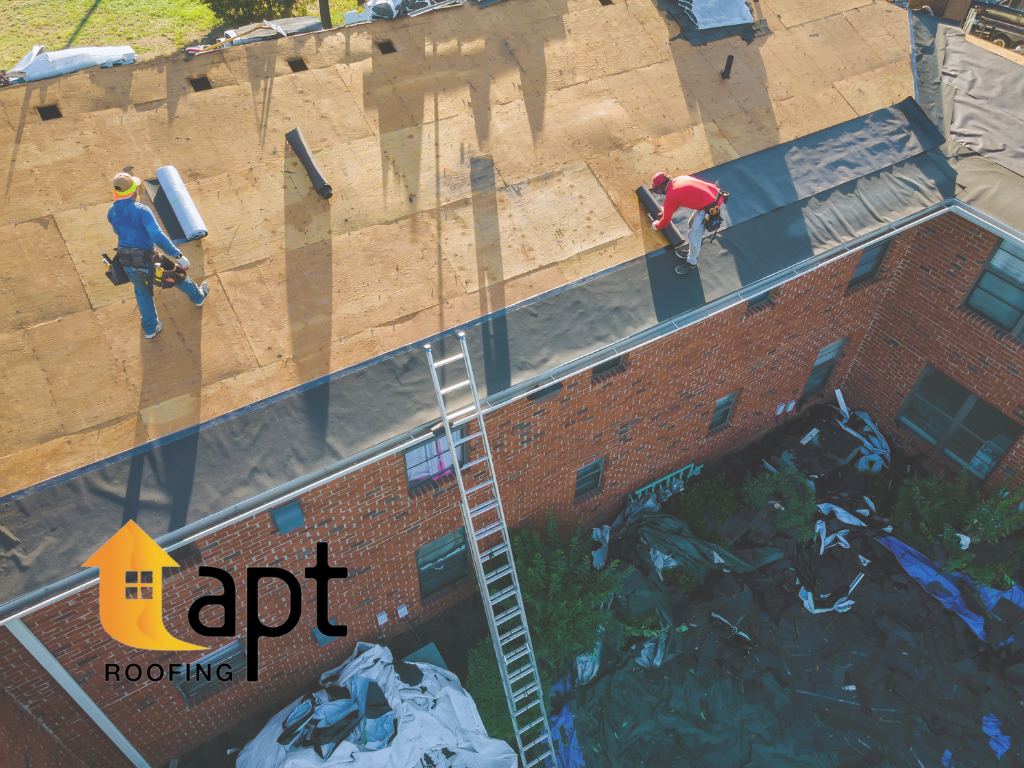Introduction
Hiring the right roofing contractor is not just a matter of finding someone to put new shingles on your roof. It’s about safeguarding your home, your sanctuary, from the elements, ensuring that the work will endure for years, and protecting your investment.
However, understanding what separates a professional contractor from an unqualified one can be challenging. This guide illuminates the key considerations every homeowner should be aware of, providing the tools you need to make an informed decision.
What Qualifications Should a Reputable Roofing Contractor Have?

A home is only as strong as its roof, and a roof is only as reliable as the contractor responsible for its installation or repair. When it comes to hiring a roofing contractor, it’s crucial to look beyond the bid price and assess the qualifications that signify expertise, credibility, and a commitment to quality. Here are the primary qualifications you should seek in a reputable roofing contractor:
Licensing
- Legal Requirements for Roofing Contractors
- Licensing regulations for roofing contractors vary significantly by region, with some areas requiring specific local or state licenses. These licenses are an essential indicator that a contractor is legally compliant and abreast with the local building codes and regulations. Before hiring a contractor, verify these requirements with your local licensing board or a similar authority.
- Importance of Hiring a Licensed Professional
- A licensed professional doesn’t just meet the minimum legal requirements. Licensing indicates a commitment to a certain standard of knowledge, expertise, and professionalism. It also signifies that the contractor has met specific criteria in terms of training and skill, providing an extra layer of protection and peace of mind for you, the homeowner.
Insurance

- Types of Insurance a Contractor Should Have
- Comprehensive insurance is non-negotiable. At a minimum, a reputable roofing contractor should have liability insurance to protect your property in case of accidental damage, and workers’ compensation to cover injuries sustained on the job. Ask to see current certificates and possibly even call their insurance provider to confirm the policies are active.
- Risks of Working with an Uninsured Contractor
- Hiring an uninsured contractor leaves you, the homeowner, vulnerable to litigation if a worker is injured on your property, or to significant out-of-pocket expenses if your property is damaged during the project. These are risks no homeowner should be willing to take.
Certifications and Industry Affiliations
- Common Certifications and What They Indicate
- Certifications, especially those from recognized industry organizations or from materials manufacturers, can set a contractor apart. For example, a ‘Certified Roofing Contractor’ or a ‘Master Elite Contractor’ typically indicates that the contractor has undergone specific training, maintains high customer satisfaction ratings, and performs top-quality installations.
- Relevance of Industry Affiliations
- Affiliations with industry organizations suggest that a contractor is committed to the craft, is current with the latest techniques and technologies, and adheres to industry standards and ethics. Look for affiliations such as membership in the National Roofing Contractors Association (NRCA) or other local roofing contractor groups.
Training and Experience
- Necessary Training for Roofing Contractors
- Proper training is crucial in roofing due to the complexity and variability of the work. A reputable contractor should have comprehensive training in various types of roofing systems, safety protocols, and technology. Training can come from formal education, apprenticeships, on-the-job experience, or through manufacturer-specific programs.
- The Significance of Hands-On Experience and Continued Education
- There is no substitute for experience. An experienced contractor has a proven track record, likely encountered and solved an array of challenges, and can provide insights that only come from years of hands-on work. Continued education is equally important, as the best contractors keep abreast of the latest industry standards, building codes, and technological advances.
What Questions Should You Ask Before Hiring a Roofing Contractor?
To ensure you’re placing your trust in the right hands, it’s vital to ask probing questions before committing to a roofing contractor. Here’s a roadmap to the essential queries that will give you insight into a contractor’s competence, reliability, and integrity:
Experience and Portfolio
- Questions About Years in Business and Past Projects
- “How long have you been in the roofing business?” Longevity can be a strong indicator of a company’s stability and experience.
- “Can you provide examples of past roofing projects similar to mine?” Requesting samples of past work ensures they have experience with your specific roofing type or issue.
- Requesting Visual Proof of Previous Work
- “Do you have a portfolio of past projects?” Visual evidence of their work helps assess the quality and variety of roofing projects they’ve tackled.
References and Reviews
- Importance of Client References and How to Approach Them
- “Can you provide references from previous clients?” Speaking to past clients can provide firsthand insight into the contractor’s quality of work and professionalism.
- Don’t just ask for references, call them. Inquire about the client’s overall satisfaction, the contractor’s punctuality, work ethic, and post-job cleanup.
- Evaluating Online Reviews and Feedback
- Pay attention to online reviews on various platforms. Be analytical about the reviews: remember, one negative review might be an outlier, but consistent complaints are a red flag.
Warranty and Contract Terms
- Understanding What a Standard Warranty Should Cover
- “What type of warranty do you offer on your workmanship and materials?” A reputable contractor will stand behind their work with a warranty, which should cover both the materials used and the actual workmanship.
- Red Flags in Contract Terms
- Insist on detailed written contracts and be wary of vague terms. A red flag is a contractor who presses for a large deposit or full payment upfront.
Estimates and Pricing
- Procuring Detailed Written Estimates
- “Can you provide a detailed, written estimate?” A reliable contractor will offer a comprehensive estimate, listing the cost of materials, labor, and any other related expenses.
- Assessing Transparency in Pricing
- “How do you handle additional costs that arise during the project?” Unexpected issues can lead to extra costs, so it’s important to know how these will be addressed.
Asking these questions doesn’t just provide answers; it tests the contractor’s patience, transparency, and customer service quality. Their willingness to respond thoroughly and professionally is a good indicator of their overall approach to service.
How Do You Resolve Disputes With a Roofing Contractor?
Even with all the due diligence, disputes with a roofing contractor can still arise. They can be due to unmet expectations, delays, unexpected costs, or issues with the quality of work. Knowing how to navigate these disputes effectively can save both parties significant stress and expense:
Preventative Measures
- Importance of Clear Communication from the Start
- Clear, open communication from the get-go helps set realistic expectations. Ensure you’re both on the same page regarding the scope of work, timeline, materials, and costs.
- Documenting Every Stage of the Project
- Keep thorough records, including contracts, correspondence (even informal discussions), and photographs of the work in progress. This documentation can be invaluable in disputes.
Initial Steps in Dispute Resolution
- Communicating Issues Directly and Professionally
- If an issue arises, reach out to the contractor directly, clearly articulating your concerns without being confrontational. Often, they will be willing to correct the issue to maintain their reputation.
- Seeking Solutions Through Negotiation
- Be open to negotiation. Sometimes, a compromise can resolve the issue quickly to everyone’s satisfaction, saving time and preserving the relationship.
Mediation and Arbitration
- Exploring Third-Party Mediation as an Option
- If direct negotiation doesn’t resolve the issue, consider mediation. A neutral third party helps both sides come to an agreement.
- Understanding the Process of Arbitration
- Some contracts require arbitration, where an arbitrator makes a binding decision. Understand this process might forego your right to sue, but it can also lead to quicker, cheaper resolution than court.
Legal Action
- Circumstances Under Which Legal Action is Necessary
- If other resolution methods fail, and the contract breach is significant, legal action may be necessary. Examples include substantial deviation from the contract without your consent or major flaws in the workmanship affecting property safety.
- Preparing for a Legal Confrontation
- Consult with an attorney specializing in construction. Bring all your documentation and correspondence to assess the strength of your case.
Resolving disputes can be challenging, but maintaining professionalism, open communication, and willingness to find mutual agreement can often defuse conflicts. However, it’s crucial to know when it’s time to escalate matters to ensure your interests are protected.
Final Thoughts and Other Tips
Your home is more than just a building; it’s a personal sanctuary and a significant investment. The roof, serving as a critical barrier against the elements, plays an indispensable role in safeguarding your home’s structure, your comfort, and your peace of mind.
Consequently, when it comes time to repair or replace your roof, the stakes are high, and the decision of which contractor to hire becomes not just a question of who can do the job, but who can do it right.








